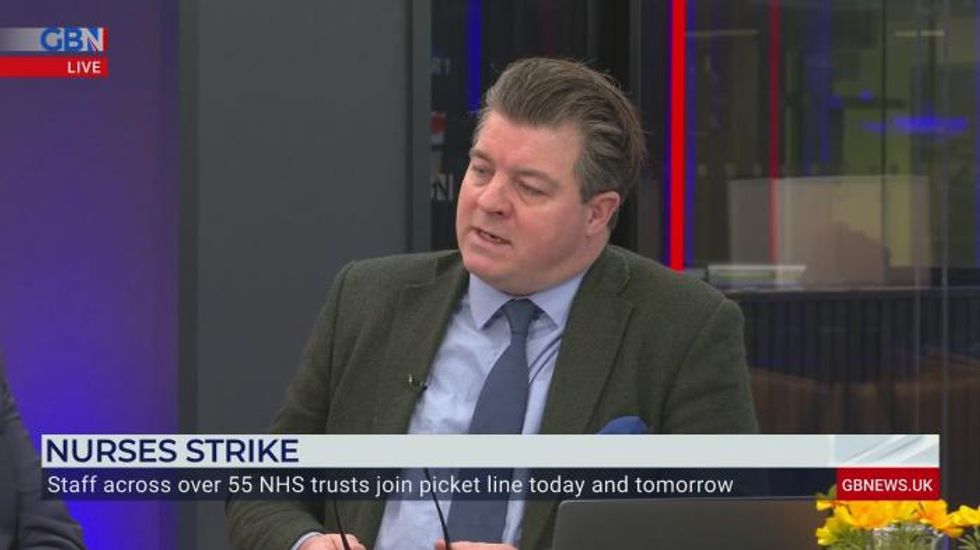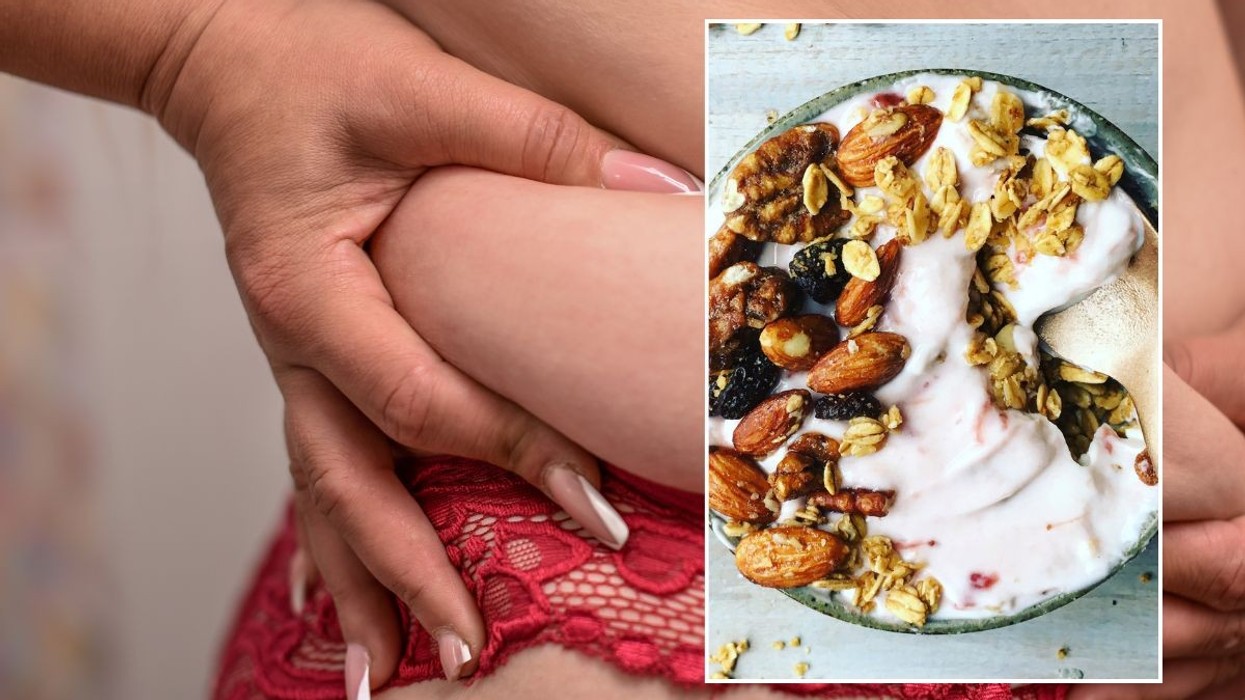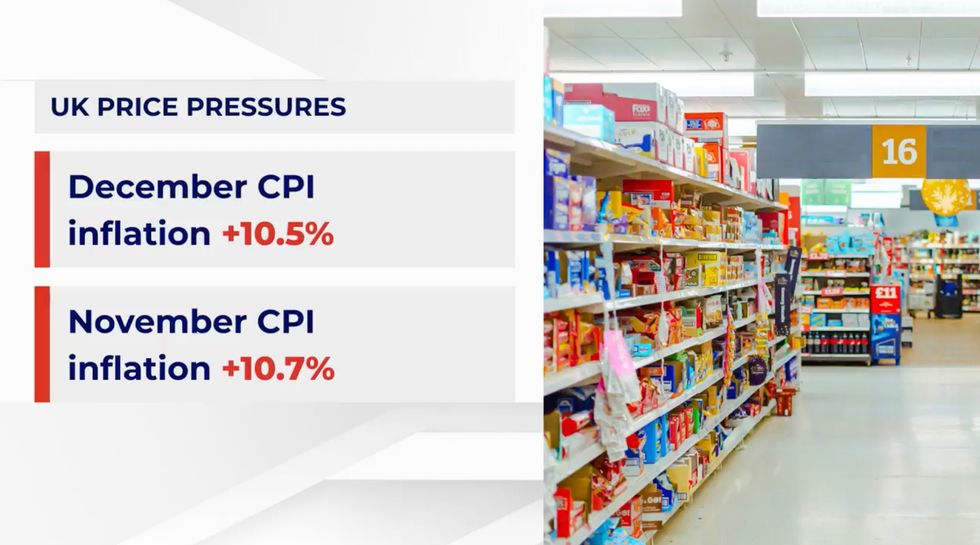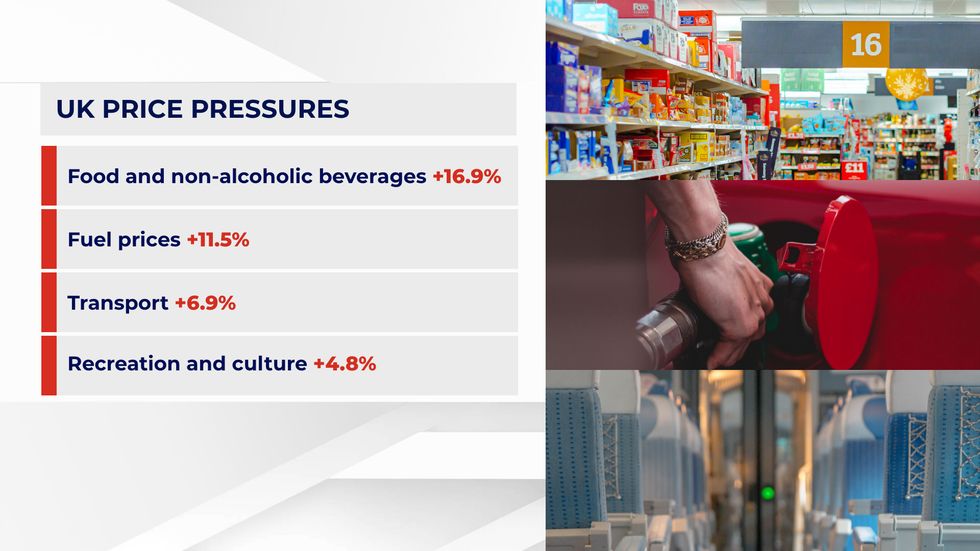Don't Miss
Most Read
Trending on GB News
The cost-of-living squeeze may be easing slightly, according to official figures released this morning. But new inflation data from the Office for National Statistics will do little to help resolve fraught pay negotiations across the UK. And the Bank of England is now more likely to impose another hefty interest rate rise at its next meeting in early February.
The rate of inflation eased to 10.5 per cent during the year to December, down from 10.7 per cent the month before, as measured by the Consumer Price Index.
While the cost of motor fuels, clothing/footwear and recreation/culture fell at the end of last year, the ONS said this was offset by higher prices for food and non-alcoholic beverages and increasing charges in restaurants and hotels.
Inflation dropped from 10.7 per cent to 10.5 per cent
GB NEWS
Inflation has been rising steadily since the autumn of 2021, as worker shortages and Covid-related supply chain issues combined with surging post-lockdown demand. Prices pressures intensified after oil and gas markets were rocked by Russia’s invasion of Ukraine last February.
The cost-of-living squeeze has caused the worst wave of industrial action since the late 1970s. While average pay is rising at an annual rate of 6.4 per cent, the fastest pace since 2001, double-digit inflation means that real wages, accounting for higher prices, are down 3.4 per cent, the sharpest drop in over a decade.
Earlier this week, Andrew Bailey, the governor of the Bank of England, said there could be a “rapid” fall in inflation in Britain amid a drop in global energy prices over recent weeks. But he also highlighted the inflationary impact of ongoing worker shortages. The Bank's chief economist, Huw Pill, has also warned inflation may prove to be more persistent in the UK than other countries.
In the United States, inflation dropped to 6.5 per cent in December, the sixth successive monthly decrease and sharply down from 7.1 per cent the previous month.
As recently as December 2021, the Bank of England’s main interest rate was just 0.1 per cent. But the Monetary Policy Committee has since raised rates nine times in a row, in a bid to tackle the most serious surge in inflation since the early 1980s.
The MPC increased rates by 0.5 percentage points to 3.5 per cent in December 2022 – the highest for more than 14 years – following a steeper 0.75 percentage point rise the month before.
There were hopes that signs inflation was easing might mean that rate-setters opted for a more moderate 0.25 percentage point increase when the MPC makes its next announcement on Thursday 2nd February.
But this relatively slow fall in UK inflation means another 0.5 percentage point rise now looks more likely. While that’s good news for savers, higher borrowing costs will make life tougher for the millions of UK households with a variable rate mortgage, those looking to buy a home and other heavily indebted firms and households.
Trade unions will seize on today’s CPI data, and other signs of persistent inflation to push for higher wage settlements.
UK price pressures contributing to inflation
GB NEWS
“The cost-of-living crisis continues – and today's figures do little to change that,” said Sharon Graham, general secretary of Unite, the UK’s second-largest union. “Profiteering is at obscene levels across the economy, and the government remains intent on forcing workers to pay for a crisis not of their making”.
The government will argue that higher public sector pay settlements will aggravate inflation, rippling across the broader economy – with firms passing on higher wage bills to consumers, resulting in higher prices still and risking a 1970s-style upward wage-price spiral.
"High inflation is a nightmare for family budgets, destroys business investment and leads to strike action, so however tough, we need to stick to our plan to bring it down,” said Chancellor Jeremy Hunt.
“While any fall in inflation is welcome, we have a plan to go further and halve inflation this year, reduce debt, and grow the economy - but it is vital that we take the difficult decisions needed and see the plan through”.













